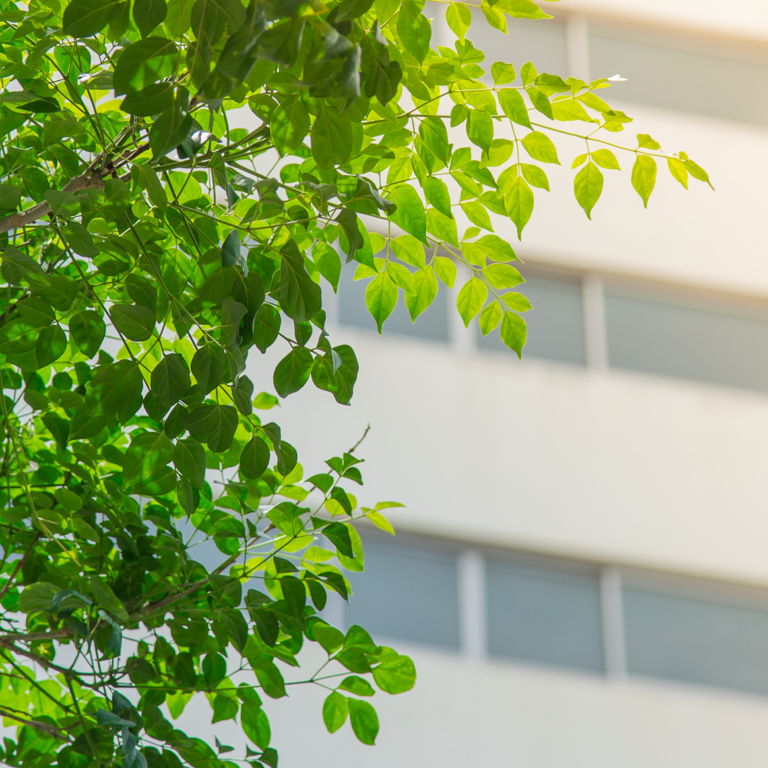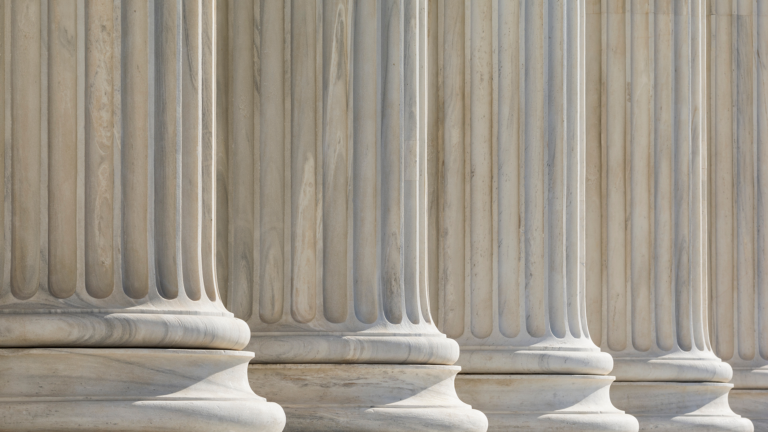Expanding Knowledge of Cement and Concrete
The American Cement Association Education Foundation funds a variety of educational activities that increase public knowledge regarding appropriate uses of cement and concrete.
Mission: The ACA Education Foundation supports education and research that extends the use of cement and concrete.
Goals: (a) Support major industry research and education initiatives; (b) Support schools teaching and students studying concrete-related courses; and (c) Support industry training by sponsoring the IEEE/ACA technical conference.
The support provided by the Education Foundation is used to identify and attract outstanding candidates in the field of engineering and the physical sciences and provide them with the necessary support to complete their studies. Additionally, this support is intended to provide them an opportunity for productive work in the cement and concrete industries.
The support of the industry is vital to the growth of the Foundation and its ability to have a significant impact. Initially established in 2001 with funding of $3.5 million from PCA (now ACA), the Foundation invites you to contribute to this valuable resource. You can take advantage of tax deductions for contributing to the foundation as it is a 501(c)3 organization. For more information on how you can contribute or participate, contact Paul Tennis.
ACA J.P. Gleason Research Fellowship Program
Since 2002, the ACA Education Foundation has awarded funding to a total of 83 Fellowship proposals on cement and concrete research. The Fellowship Program augments ACA’s other research efforts, with flexibility to raise awareness of cutting-edge topics or to focus on well-studied topics from a new perspective. ACA members carefully consider each proposal for its potential impact to improve the use of cement or concrete.
Given the versatility of uses for cement and concrete, the research topics are vast. Over the 20+ years of the program, the variety of topics studied includes:
-
- Material recycling
- CO2 uptake
- Portland-limestone cements
- Green concrete mixture design
-
- Self-consolidating concrete (SCC)
- Roller-compacted concrete (RCC)
- Soil-cement
- Pervious concrete
-
- Synthesis of portland cement and calcium sulfoaluminate-belite cement for sustainable development and performance
- Fate and abatement of mercury in cement kilns
- Catalyst treatments of recycled fuels
- Optimizing cement particle size distributions (PSD)
-
- Reducing noise through surface characteristics
- Bonded overlays
- Bond shear strength to RCC base
- Sedimentation of pervious pavements
- Full-depth reclamation (FDR) to rehabilitate asphalt pavements
- Carbon sequestration of pavements
- Training for engineers
- Durability
-
- Effect of member depth on shear strength of reinforced concrete flexural members
- Model development to assess concrete framing systems
- Reinforced concrete columns and beam-column connections under seismic loading
- Evaluating vibrations in concrete floor systems
- Shear strength of stud rail assemblies
- Serviceability behavior of reinforced concrete discontinuity regions
-
- Non-destructive tests (NDT)
- Infrared imaging to monitor internal vibration
- Developing a rapid test to determine concrete transport properties
- Performance-based approach to evaluate alkali-silica reaction (ASR) potential
- Development of rapid/accelerated ASR tests
- Extending use of the pressure meter to evaluate air void systems in fresh concrete
- Evaluating coarse aggregate effects on freeze-thaw durability
- Use of non-linear ultrasonic techniques for rapid alkali-aggregate reaction (AAR) assessment
- Further development of rapid sulfate resistance tests
Call for Nominations
The American Cement Association Education Foundation funds a wide variety of educational activities that will increase public knowledge regarding appropriate uses of cement and concrete. Within that global purpose is a specific purpose to:
Advance general scientific understanding of cement and concrete by providing scholarships, fellowships, grants, and other support for the study of engineering and the physical sciences relating to the production and use of cement and concrete.
The support provided by the Education Foundation is used to identify and attract outstanding candidates in the field of engineering and the physical sciences and provide them with the necessary support to complete their studies. Additionally, this support is intended to provide candidates an opportunity for productive work in the cement and concrete industries.
The fellowships are open to any student completing studies toward a masters or doctoral degree from an institution of higher education within the United States or Canada that is accredited by a regional or national agency. The applicant must pursue graduate study in an engineering, science, or architectural program. Each fellowship includes a $35,000 grant paid to the university to cover tuition, residence, research materials, equipment, study materials, and related educational expenses, but does not include payment for institutional overhead. [Note that the scope of proposed research should be aligned with available funding and that co-funding by other sponsors is permitted and encouraged.]
In the last few years, the need for research on cement and concrete has become increasingly urgent as society grapples with climate change issues. For this current fellowship competition, research proposals may focus on topics described in ACA’s Roadmap to Carbon Neutrality that support the following subject areas (with no priority implied):
-
- Estimating the impact of optimized use of recycled materials, including alternative fuels and raw materials in clinker manufacture, in hydraulic cements, and in concretes, to improve the CO2 footprint, improve life-cycle performance, reduce the burden on landfills, and improve the circular economy.
- Improving recognition of concrete system performance through better use of life cycle assessments (LCAs) and environmental product declarations (EPDs) to account for both service impacts and embodied impacts of construction.
- Other research investigating the optimization of cement and concrete for sustainable concrete construction, including use of novel approaches to optimize the clinker-to-cement ratio of cement blends, or to optimize design of structural concrete.
-
- Improving raw mix burnability using mineralizers, alternative raw materials, or other means.
- Advanced grinding technology for raw materials or cements.
- Optimizing performance by separate grinding and blending of cement ingredients.
- Advancement of carbon capture, utilization, and storage (CCUS) technology, including novel approaches to capture CO2 from cement kiln emissions, beneficially utilize the captured carbon, or transport and store it.
-
- Quantitative method to characterize the reduction in CO2 footprint of cement manufacture using alternative fuels.
- Method or method(s) for quantitative determination of CO2 uptake in fresh and/or hardened concrete, mortar, or paste, in either laboratory or field exposures or both.
- Updated software tools with consideration of blended cements for mass concrete, crack prediction, and service life prediction of transportation structures.
- Novel non-destructive test (NDT) techniques to assess finishing timing of flatwork, especially when using newer cementitious materials that may affect concrete performance.
- New or novel test methods for assessing the finishability, pumpability, bleed rate, set time, and sensitivity to early age curing that may be different for blended cements compared to traditional portland cements.
More Information
A university professor and the candidate student must jointly submit applications. Applications must be received by March 15, 2025. The proposal should not exceed four pages in length using 12 point Times New Roman font and should follow the format in the ACA J.P. Gleason Research Fellowship Program template.
ACA committee members review and endorse nominations for support. The ACA Education Foundation Board of Directors makes the final determination regarding the selection of each fellowship. Final award determinations are tentatively scheduled to take place in June/July with award notifications soon thereafter.
Submittals with detailed descriptions of the proposed project should be sent via e-mail with a subject heading of “2025 Fellowship Proposal” to:
James Farny
Director, Environmental Measurement and Metrics
American Cement Association
Email: jfarny@cement.org
Click here for a pdf of the proposal format document.
Investing in the Future through Fellowships
In addition to the research results that come from any project, there is another benefit: developing the next generation of industry personnel. Many recipients go on to successful careers in related fields.

